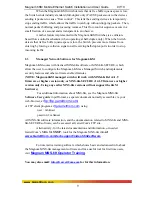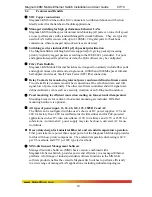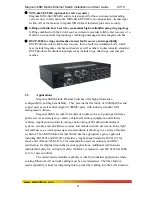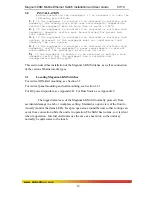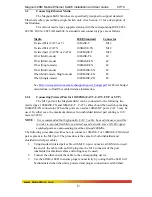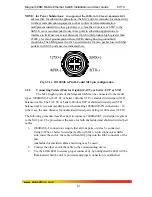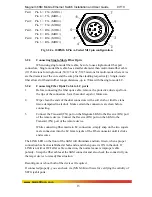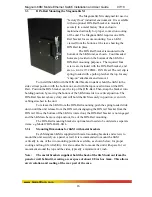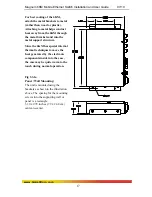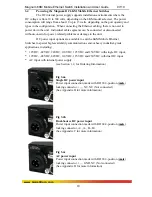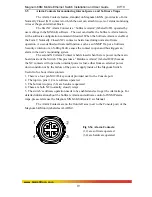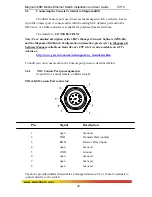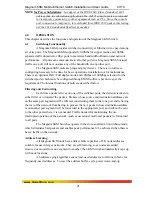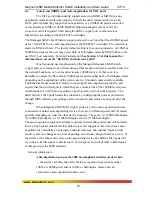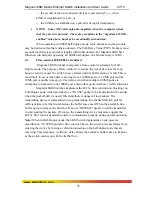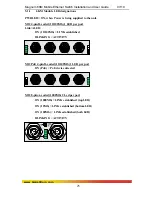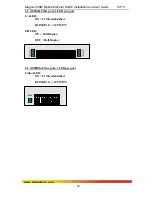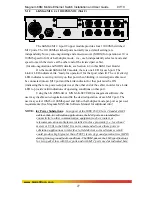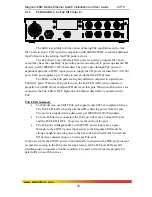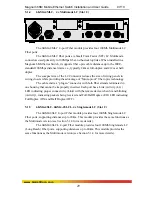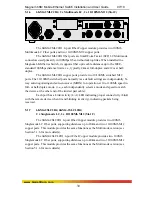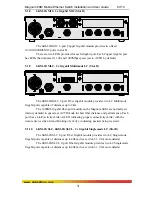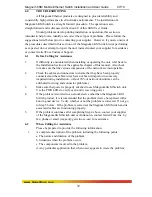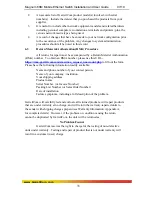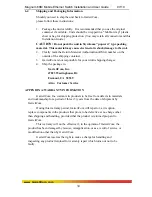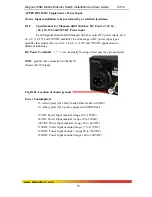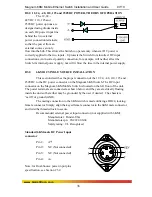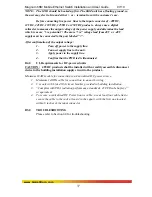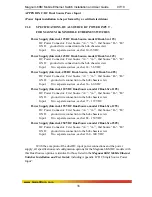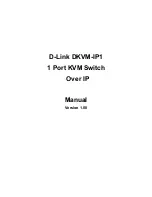
Magnum 6KM Mobile Ethernet Switch Installation and User Guide
07/10
23
www GarrettCom com
.
.
-- the second of the two connected devices is powered up*, i.e., when
LINK is established for a port, or
-- the LINK is re-established on a port after being lost temporarily.
•
NOTE
–
Some NIC cards only auto-negotiate when the computer system
that they are in is powered. These are exceptions to the “negotiate at LINK –
enabled” rule above, but may be occasionally encountered.
When operating in 100Mb half-duplex mode, cable distances and hop-counts
may be limited within that collision domain. The Path Delay Value (PDV) bit-times must
account for all devices and cable lengths within that domain. For Magnum 6KM Fast
Ethernet switched ports operating at 100Mb half-duplex, the bit time delay is 50BT.
4.3
Flow-control, IEEE 802.3x standard
Magnum 6KM Switches incorporate a flow-control mechanism for Full-
Duplex mode. The purpose of flow-control is to reduce the risk of data loss if a long
burst of activity causes the switch to save frames until its buffer memory is full. This is
most likely to occur when data is moving from a 100Mb port to a 10 Mb port and the
10Mb port is unable to keep up. It can also occur when multiple 100Mb ports are
attempting to transmit to one 100Mb port, and in other protracted heavy traffic situations.
Magnum 6KM Switches implement the 802.3x flow control (non-blocking) on
Full-Duplex ports, which provides for a “PAUSE” packet to be transmitted to the sender
when the packet buffer is nearly filled and there is danger of lost packets. The
transmitting device is commanded to stop transmitting into the 6KM Switch port for
sufficient time to let the Switch reduce the buffer space used. When the available free-
buffer queue increases, the Switch will send a “RESUME" packet to tell the transmitter
to start sending the packets. Of course, the transmitting device must also support the
802.3x flow control standard in order to communicate properly during normal operation.
Note:
When in Half-Duplex mode, the 6KM Switch implements a back-pressure
algorithm on 10/100 Mb ports for flow control. That is, the switch prevents frames from
entering the device by forcing a collision indication on the half-duplex ports that are
receiving. This temporary “collision” delay allows the available buffer space to improve
as the switch catches up with the traffic flow.

